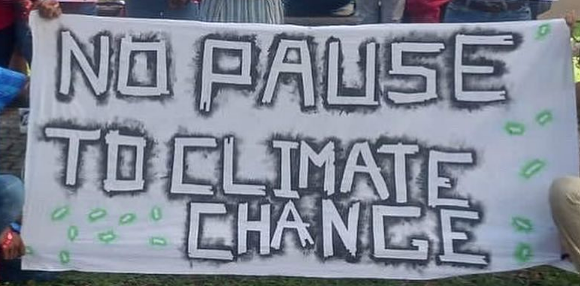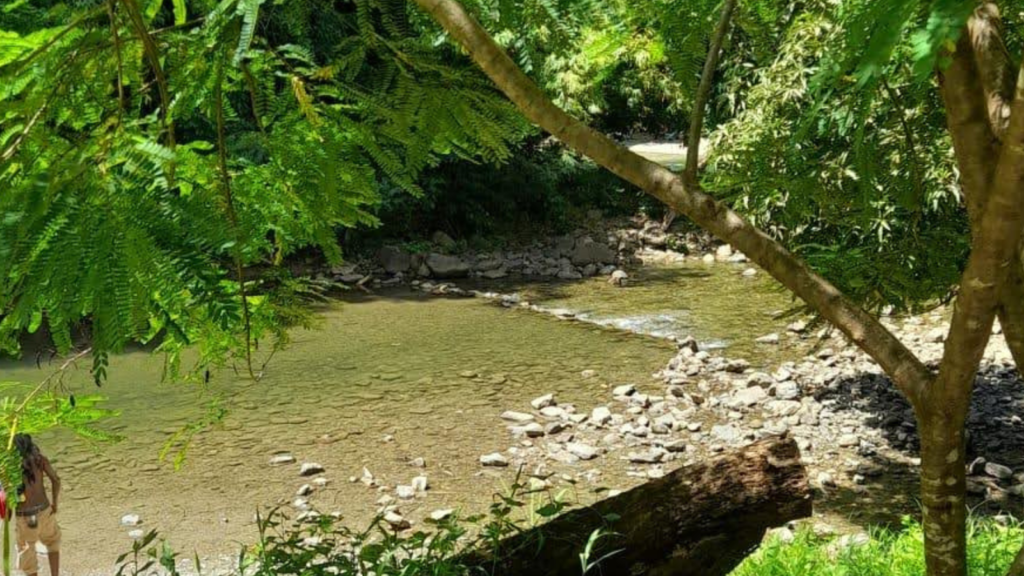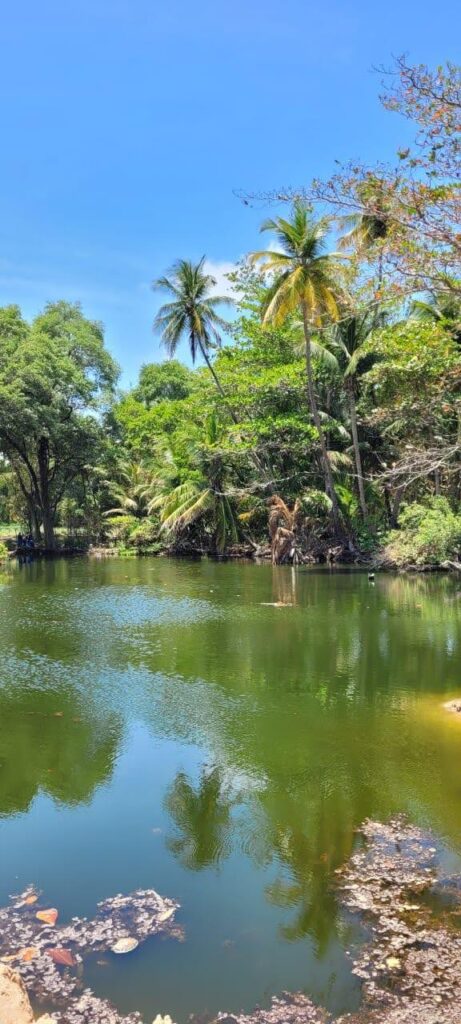The Comfort Zone
I’m walking along the litter-strewn streets of Couva, now lined with more big-chain stores than I can count. These are the same streets I grew up on—the same streets where everyone around me, myself included at times, has grown desensitised. We’ve become so accustomed to the sight of garbage that we hardly notice it anymore. It’s unsettling how comfortable we’ve become living amid the waste.
I smile at unfamiliar faces that will soon fade from memory; none smile back. I instinctively murmur “good morning,” but the greetings go unanswered. It strikes me how rare it’s become for strangers to acknowledge each other. The thought saddens me.
A man catches my eye but quickly looks away. He’s eating something I can’t quite identify. Without a second thought, he tosses the wrapper onto the ground. No one else seems to notice. The wind nudges it down the pavement, along the edge of the drain, until it finally slips in. My heart sinks with it.
At its core, the mistreatment of nature in Trinidad and Tobago is more than an environmental crisis—it reflects a deeper issue of diminished empathy and compassion. While the consequences of flooding, deforestation, and pollution are undeniable, an equally dire problem — arguably much more simple — is a widespread disconnection from and indifference toward the environment. Too often, nature is viewed as a resource to be exploited rather than a shared home to be respected and cared for.
Apathy and detachment have driven environmental degradation. Why do so many ignore the urgent warnings of climate experts? Why is the destruction of habitats met with indifference instead of outrage?
Insight from a youth climate activist gathered from a “mistreatment of nature” survey conducted last month (22nd November 2024) states, “Most people tend to ignore things that are upsetting or bleak, whether or not those bleak ideas are facts…most people don’t consider non-human survival as important, nor do most people stop to think about the impact our wider environment has on our survival as a species.”

The Facts
Small Island Developing States (SIDS) like those in the Caribbean face disproportionate risks due to climate change, including sea-level rise, extreme weather, and economic vulnerability. Between 1990 and 2015, global sea levels rose by approximately three inches, accelerating faster than the previous 90 years. Projections indicate sea levels could rise by up to eight feet by 2100 due to melting glaciers and ocean thermal expansion, which directly threatens coastal communities and economies dependent on marine resources.
Additionally, increased sea temperatures have contributed to more intense hurricanes. For instance, the Atlantic hurricane season of 2020 broke records with 30 named storms, surpassing long-term seasonal averages. Ocean warming also causes coral bleaching, devastating fisheries and tourism—a critical income source for many SIDS.
Economic challenges compound these risks. Many SIDS have limited resources to adapt or recover from climate-related disasters, often relying on international aid. The urgency to address these threats remains critical, yet public engagement is inconsistent due to factors like climate fatigue, misinformation, and lack of relatable storytelling about these impacts.

The Resistance
The conflict I’m centring on is resistance to change—a reluctance to accept personal responsibility and confront societal shortcomings. While it’s true that individual action alone cannot offset the environmental damage caused by corporations, irresponsible elites, or even emerging technologies like AI, personal responsibility still plays a crucial role.
Addressing environmental degradation requires a cultural shift toward empathy, not just for nature, but for the people whose lives depend on it. This means recognising how everyday choices, such as reducing waste or supporting sustainable policies, contribute to a broader environmental ethic. At the same time, holding corporations and governments accountable for their environmental impact is equally vital.
The challenge lies in overcoming climate apathy and fostering a collective sense of stewardship. Environmental care must be framed not as an isolated task but as a shared responsibility woven into the fabric of community well-being. This dual approach—combining systemic reform with personal commitment—offers the best path toward lasting change.
The Scepticism
Over the years, climate change has been viewed in different ways, through
scientific, natural, social and political lenses. Though undeniably important, I wonder why so many people have not solely looked at this issue from the perspective of compassion.
As Seyifunmi Adebote puts it, “Since climate change cannot be seen, smelled, heard, or touched as a discernible object…people make sense of and propagate climate change based on their interpretations.”

Climate scepticism has roots tracing back to 1896 when Swedish physical chemist Svante Arrhenius calculated that doubling atmospheric carbon dioxide would raise the Earth’s mean global temperature by several degrees. His groundbreaking work suggested a link between human activities and climate change, but this idea was met with scepticism and largely dismissed by the scientific community in the early 20th century.
By 1956, physicist Gilbert N. Plass revitalised the discussion with advanced calculations showing that increased CO2 in the atmosphere traps heat, preventing it from escaping into space. His work laid the foundation for modern climate science. Charles David Keeling followed with precise measurements of atmospheric CO2 levels, confirming a steady increase. His iconic “Keeling Curve” provided undeniable evidence that human activity was contributing to global warming.
Today, the interconnectedness of social and environmental systems is clear. Climate change is not just an environmental crisis but a social one, disrupting economies, reshaping communities, and challenging global sustainability efforts. How societies respond to ecological problems reflects a collective desire—or failure—to preserve the natural world while ensuring a livable future.

The Feelings
To understand the civic responses (or lack of responses) to environmental issues, I found it can be useful to explore emotions and other embodied impulses in the context of human-environment interactions. How people feel about the environment, their home, their future, and consumer culture more generally all work to shape perceptions of available and compelling courses of action. The meanings attributed to the natural world, to personal identities, and to living places all deeply depend on thought processes as well as a range of emotions: from fear of the future to moral outrage about the present, from the individual pleasures of consuming ethically to the collective feeling of closeness that comes from shared struggle.
Numerous theoretical frameworks such as early U.S. linear progression models, altruism, empathy, and prosocial behaviour models, and sociological models, Theory of Planned Behaviour (TPB) have been developed to explain the gap between the possession of environmental knowledge and environmental awareness, and displaying pro-environmental behaviour. Although hundreds of studies have been undertaken, no definitive explanation has yet been found.
The Individual…and the downfall
Addressing the environmental crisis requires more than assuming modern society will adopt new values. Both ecocentric principles, which emphasise caring relationships with nature, and the development of empathy can serve as powerful tools for fostering a society grounded in ecological responsibility.
However, the rise of individualism has played a significant role in environmental degradation. This mindset often prioritises personal comfort over environmental impact. I’m reminded of my younger sister, who insists on using single-use plastic straws because she dislikes how cold reusable metal straws feel. Her convenience takes precedence over reducing plastic waste, reflecting a common struggle between personal comfort and environmental responsibility.
Similarly, my mother continues to support major chain stores, believing that her individual purchases have little impact on the broader environment. This notion overlooks the cumulative effect of consumer behaviour, where collective small actions—positive or negative—can create substantial environmental consequences.
Shifting toward ecological consciousness requires breaking these habitual patterns through education, policy changes, and fostering a culture that values sustainability. When individuals recognise the broader implications of their choices, meaningful environmental change becomes possible.
The Choice of Kindness
However, as I have come to realise, more people than not have this mentality in Trinidad and Tobago. If you toss a plastic fork on the floor, how much harm are you causing? It may end up in the drains. Why is that a big deal? It’s just your one plastic fork.

But what if one in every three people thought that way? And they do, mind you. It’s not just your plastic fork in the drain. It’s never just your bad decision. It’s never just one lazy decision. People often choose the easiest solution for themselves daily. More times than not, that decision is harmful. And most times people choose to ignore just how much effect they have on the world around them.
We’ve reached a point where many have forgotten that kindness is free. Whether it’s holding a door open for someone with full hands, offering a simple “good morning” to a stranger, or taking a few extra steps to properly dispose of litter, none of these things cost a thing. They are simple acts of decency that require little effort but make a world of difference. Fear-driven tactics or guilt shouldn’t be the motivators for actions that people should inherently care about. Doing the right thing should be natural, not something forced upon us.
In Trinidad and Tobago, we love a good deal. The idea of something being “free” resonates deeply with us. Well, compassion for our planet and its inhabitants comes at no cost.
It’s effortless to approach the climate crisis with empathy, to see the world—and each other—with kindness. That’s the best deal we can offer ourselves and future generations. I encourage you to take it.
—
This story (further edited) was originally published by CariBois, with the support of the Caribbean Climate Justice Journalism Fellowship, which is a joint venture between Climate Tracker Caribbean and Open Society Foundations.